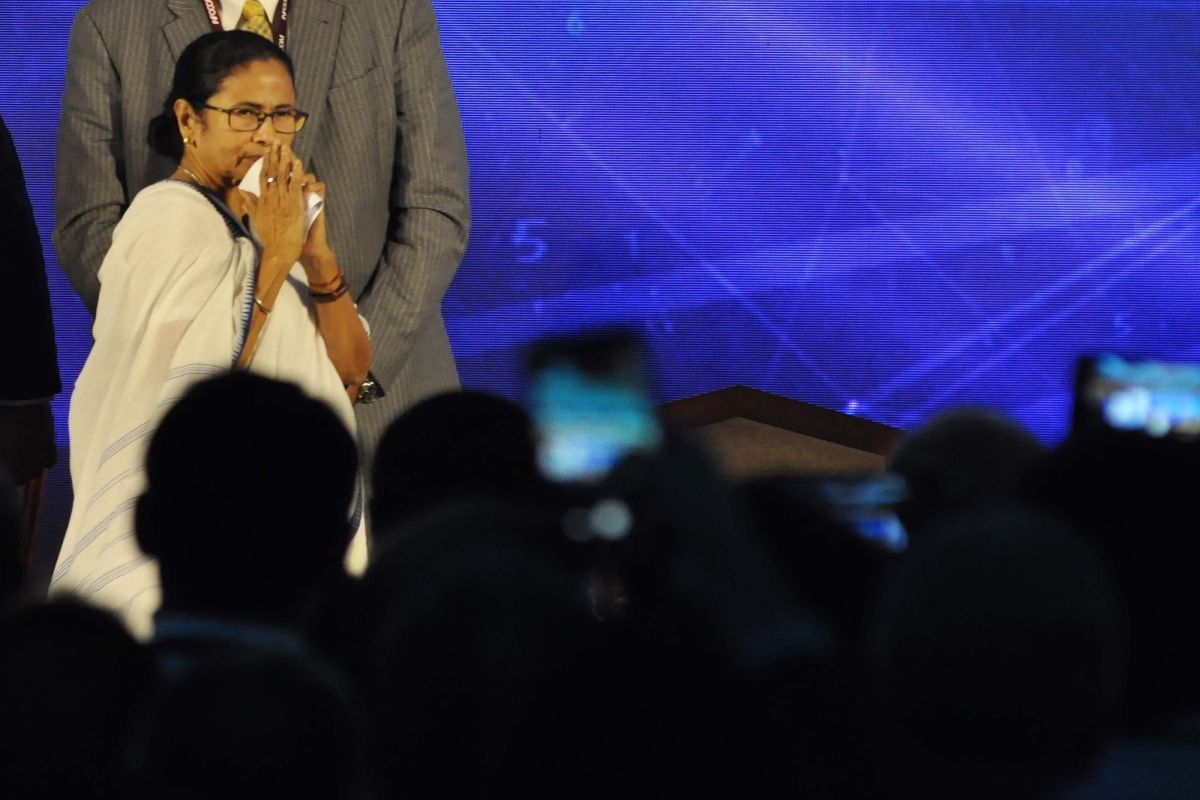Murshidabad violence planned by BJP: CM
Terming Prime Minister Narendra Modi as a 'great liar', Chief Minister Mamata Banerjee today said that the violence at Rezinagar in Murshidabad on Wednesday was preplanned by the BJP.
She also said the she would like to see that how many people say yes and how many say no.

West Bengal Chief Minister Mamata Banerjee. (Photo: Kuntal Chakrabarty/IANS)
West Bengal Chief Minister Mamata Banerjee challenging the ruling BJP in centre on Thursday said that let there be an impartial organization like United Nations or Human Rights Commission to form a committee to see how many people are in favour and in against the CAA and NRC.
She further said that if the people rejected the two, then the Modi government has to resign.
“If you have the guts, let there be an impartial organisations like UN or HRC to form a committee to see how many people are in favour or in against CAA and NRC issues. You won’t conduct it, it will be conducted by the United Nations – an impartial organization,” Mamata said.
Advertisement
“Let them play a very important role. Let there be a committee on experts of UN, human rights. Neither the Trinamool, nor BJP nor any other parties will be there,” she said.
“None of the communities like Hindus, Muslims, Sikhs, Christians, will be there,” she added.
She also said the she would like to see that how many people say yes and how many say no.
The passing of the controversial Cittizenship Bill has triggered countrywide protests as since it becoming a law, citizens specially college students took to street in protest against the legislation.
On Sunday the protest in Jamia Millia Islamia took a violent turn as many students were injured in the protest as the police entered the varsity campus and thrashed the protesting students brutally. However the 10 protesters who were detained in connection with the Jamia protests turned out not to be a Jamia student.
On Thursday, the protest again took a violent turn as many people took to street in protest against the Act resulting in closure of 19 metro station and internet services in some places in national capital. Section 144 was also imposed in few parts of the city.
Protests turned violent in Lucknow, Uttar Pradesh and Mangaluru, Katnataka where many vehicles were set on fire and many protesters and police personnel were injured.
The amended law seeks to provide citizenship to Hindu, Sikh, Buddhist, Jain, Parsi and Christian communities who have faced religious persecution in Pakistan, Bangladesh, and Afghanistan and have arrived in India on or before December 31, 2014.
Violent protests have been reported from across the nation as locals and students demonstrating against the Act clashed with the police.
Campuses in India have erupted in anger over the amended law with students from at least 15 universities taking on to the streets.
Advertisement